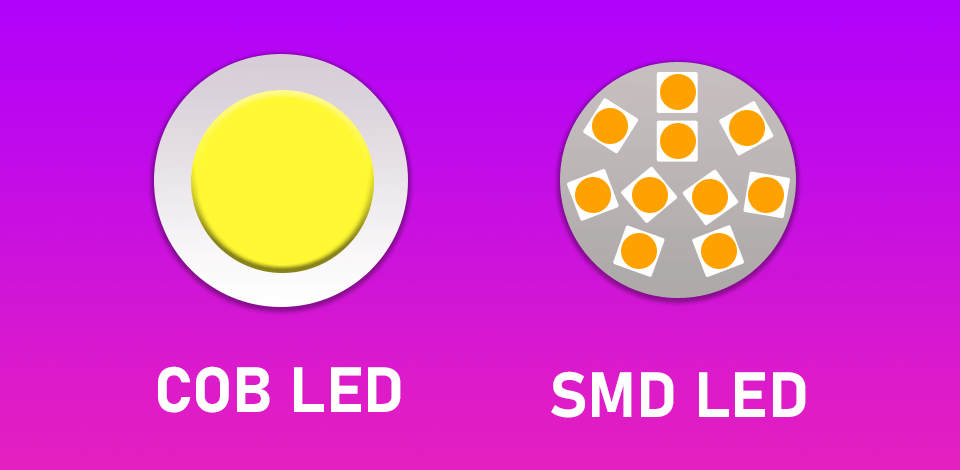
COB light, or Chip-on-Board light, leverages the power of LED lighting technology and consists of LED chips attached to a circuit board. As a result, it becomes an efficient solution for those who are looking for a powerful light source supporting high brightness.
As a retoucher with years of experience, I know how to edit COB light photos and what makes them different from photos taken with the help of other types of light sources.
Acquiring an in-depth understanding of COB lights is crucial for those who want to minimize power consumption at home, install cost-effective lighting at their business facilities, or take photos using different light sources, depending on the situation.
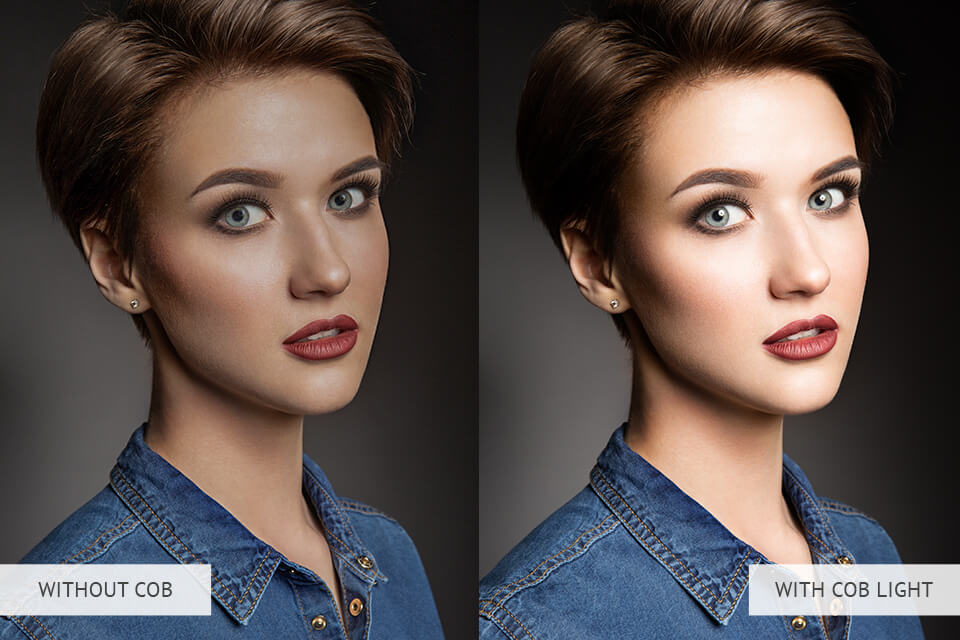
COB lights are known as one of the best LED lights for videos and photos. Many professionals prefer to utilize them due to their excellent brightness, which is achieved thanks to the specific LED chip combination.
Due to the high density of chips mounted to the circuit board, consistent light distribution becomes possible. This light source does not produce noticeable highlights and deep shadows, which allows it to illuminate a wide area.
In addition, thanks to the compact design of such light sources, they can be used in small rooms or in situations that do not require high-profile lighting.
One of the main selling points of COB lights is that they stand out for their excellent thermal management. COB lights consist of LED chips directly connected to a circuit board, which allows them to dissipate heat with high efficiency and remain in a functioning state longer. Thanks to this, the owners of such light sources should not worry about possible malfunctioning of these lighting devices.
COB lights stand out for their color rendering capacity, which allows photographers to capture the colors of objects with high precision. Whether you use Philips COB light or other models, they are perfect for those who are interested in a high level of clarity and detail, which makes them perfect for those who value high color accuracy. This is why they are highly valued by retail business owners and are often installed in art galleries.
Another advantage of COB lights is that they last for a long time. Provided a user performs regular maintenance to ensure their stable operation, COB lights will have an impressive lifespan. Due to this, their owners can save money on replacements and maintenance.
Besides, COB lights stand out for directional control features and allow adjusting light output. They are suitable for creating beam angles and lighting effects. This option allows them to be used for task and accent lighting. Besides, they are perfect for spotlighting, as they produce focused illumination.
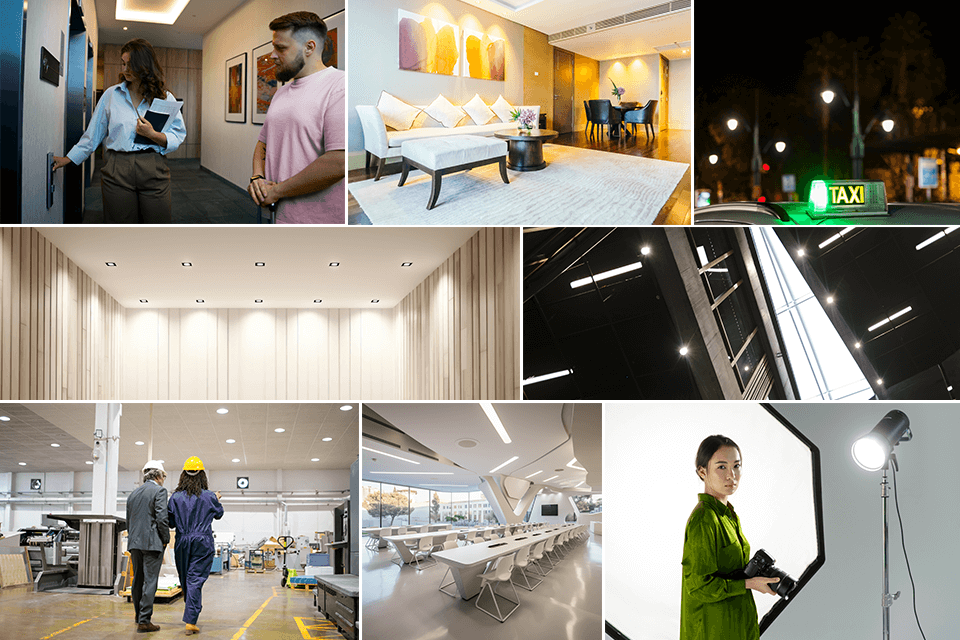
COB lights are used in many situations where high brightness and low energy consumption are crucial. Below, I have outlined the main cases when everyone can benefit from utilizing COB lights:
Task Lighting: COB lights stand out for their capacity to fully illuminate specific environments, including offices and workspaces where people benefit from good lighting.
Accent Lighting: Due to excellent brightness levels and directional capabilities, COB lights are best suited for emphasizing specific areas or elements of buildings and interior decor.
Outdoor Lighting: COB lights have a long lifespan and are fully weather resistant, which makes them an excellent choice for outdoor use. They are perfect for landscape, security, and pathway lighting.
Commercial Settings: Owners of retail stores, galleries, and exhibitions often install COB lights as they make products and artwork stand out and fully transform the atmosphere by making the interior more welcoming.
Industrial Environments: COB lights are often used at large storage and manufacturing facilities, including factories and warehouses as they have a specific design that prevents them from being damaged.
Residential Lighting: COB lights illuminate every area of a house, which is why they are used as sources of ambient light in living rooms, bathrooms, kitchens, and other spaces. Besides, a COB LED light strip can be used as an element of exterior lighting setups.
Photography: COB lights are a must for every photographer who wants to get a professional studio lighting kit. They serve as a source of consistent lighting and allow adjusting its intensity with ease. Thus, these light sources are perfect for taking pro-level photos without sharp shadows and highlights.
When comparing such LED lights for photography and SMD (Surface Mount Device), one might notice that they have different designs, performance, and use cases. Besides, they are built in different ways.
Below, I have outlined the main features that set them apart from each other. In this table, you will find their key differences and learn what is a COB light bulb.
| COB Lights | SMD Lights | |
|---|---|---|
|
Design |
LED chips without any packaging are directly attached to a substrate or circuit board |
Surface mount technology (SMT) is used to attach LED chips to the surface of a circuit board |
|
Construction |
A thermally conductive adhesive is utilized to connect LED chips to the substrate or board |
LED chips are soldered onto the circuit board. Resistors and capacitors may be included as well |
|
Performance Characteristics |
Excellent brightness, consistent light distribution, superb thermal management |
Well-thought-out design suitable for many uses, small, and easy to customize |
|
Applications |
Residential, commercial, outdoor, automotive, and horticultural lighting systems |
Display backlighting, signage, architectural lighting, decorative lighting |
If you want to select the best COB LED light for your needs, pay attention to its luminosity (it is measured in lumens). You should also consider the supported lighting modes, reliability, and build quality. Waterproof solutions are suitable for outdoor use.
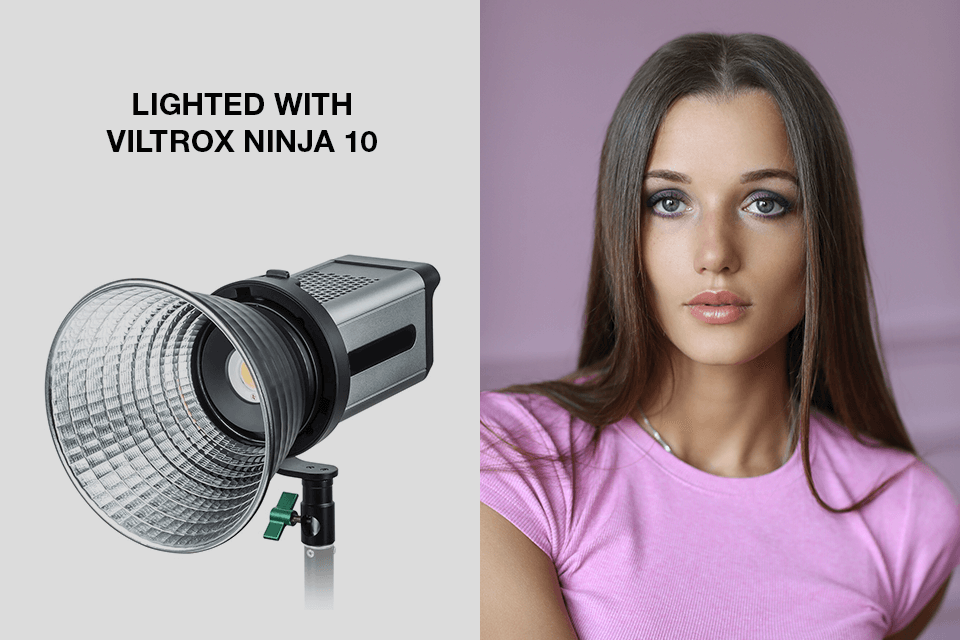
As a photographer who often organizes studio photoshoots, I prefer to always keep Viltrox Ninja 10 at hand. It does not take up a lot of space, which allows me to take it with me anywhere. I can use it to improve lighting in every situation.
However, what makes this model especially useful for me is that it supports impressive brightness. Due to a COB LED, it illuminates the whole area and enables me to capture stunning photos even in poor-light situations. Regardless of the type of light source I use, be it a key, fill, or accent light, utilizing the Ninja 10 allows me to achieve uniform lighting by minimizing shadows and avoiding highlights.
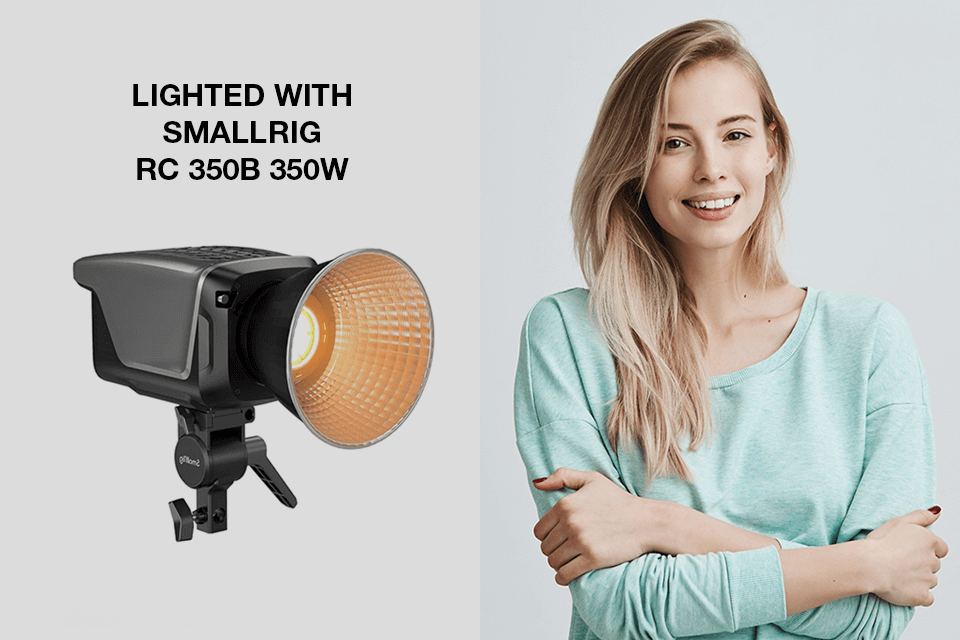
Using this COB light, I can achieve uniform light distribution with ease, as it allows me to adjust the color temperature from 2700K to 6500K. Even if you have never worked with such light sources before, you will easily learn how to use them and set the desired brightness and color temperature.
Unlike the previous option, this one has a more durable build as it’s made of aluminum alloy and ABS plastic. In addition, you can mount it in different ways, which makes it even more convenient to use.
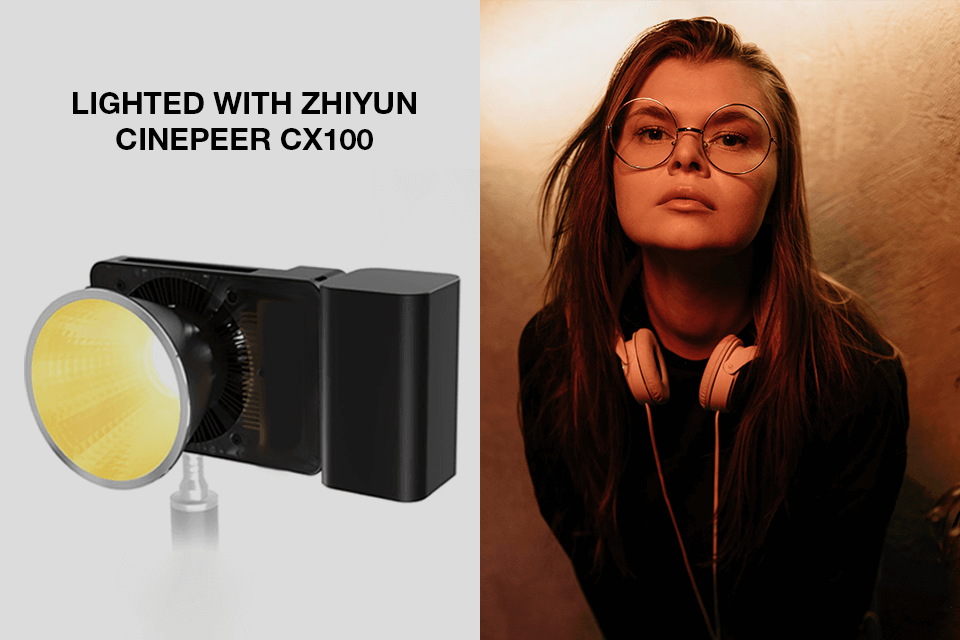
After using Cinepeer CX100, I can conclude that this model with a small form factor has a nice design and delivers top-level performance. Even though it fits in my hand, it can help you improve your professional lighting setup when you have to use extra light sources on the go.
What makes it different from many ring lights for photography is that it has a powerful battery which enables me to use this light source for 30 minutes without plugging it in.
This model is built based on edgy technology and stands out for its portable design, which allows me to use it for a variety of lighting scenarios when I take photos in my studio.
As I have been working at FixThePhoto for more than 10 years, I have plenty of experience when it comes to photography and retouching tasks. I have often had to enhance photos taken with COB (Chip-on-Board) and SMD (Surface Mount Device) lights.
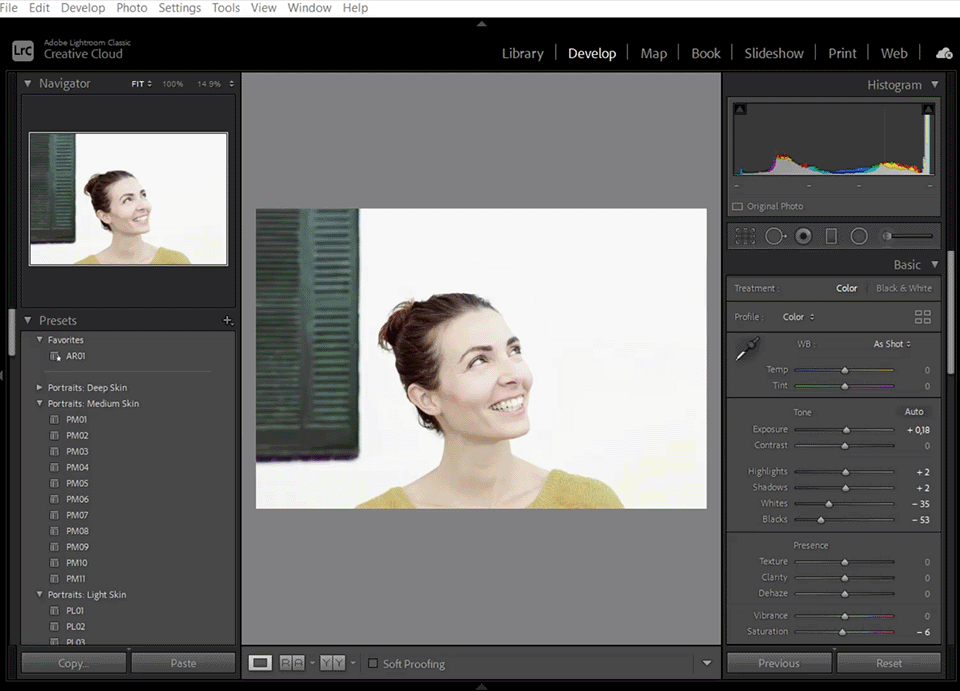
Editing COB light photos in Lightroom
As I often need to edit photos taken with COB lights, I noticed that they have uniform lighting, which is why I do not need to spend a lot of time fixing issues with glare and excessive shadows. I can achieve a well-balanced exposure and precise color rendering when enhancing my pics. Besides, COB lights allow me to take professional-quality photos with accurate colors and realistic skin tones.
If you take photos using Surface COB light, you may face specific obstacles when trying to edit them. Even though this light source is suitable for a variety of uses and stands out for its convenient design, it cannot be compared with COB lights in terms of light uniformity and color accuracy. Due to this, it might be challenging to edit pictures taken with SMD light sources. You will have to focus on detail and fix issues with exposure, color temperature, and shadows.
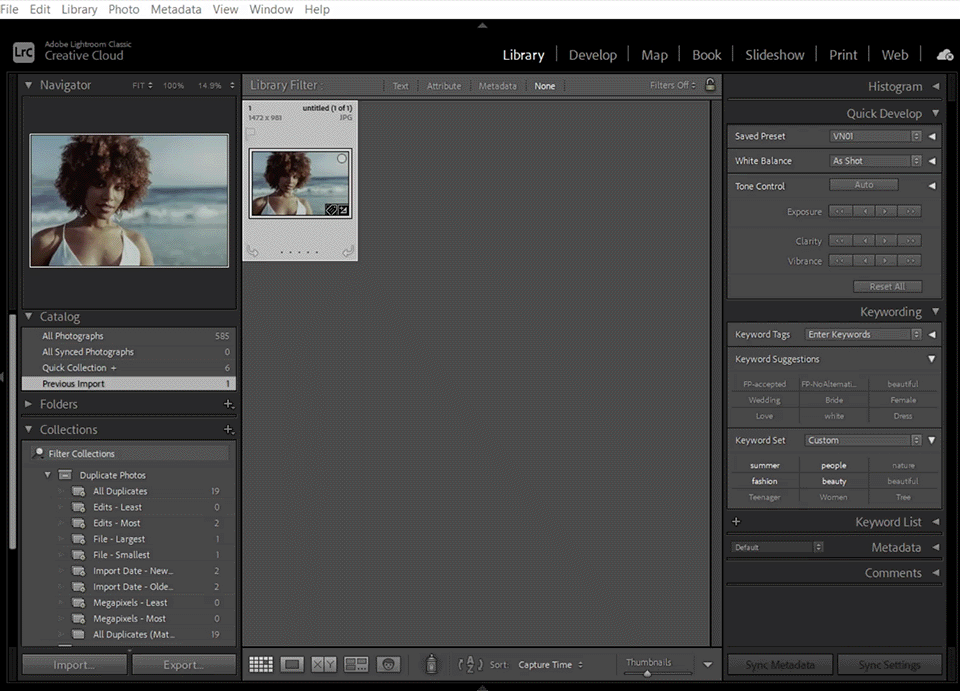
Editing SMD light photos in LightroomEditing SMD light photos in Lightroom
Whether I take photos using COB or SMD lights, I need to perform similar tasks to achieve the desired effect and make my photos more attention-grabbing. My task is to enhance the overall look of my pictures without editing them too much.
When I need to fix exposure issues, improve color balance, or edit small details, I use my experience to emphasize the main idea of my photos.
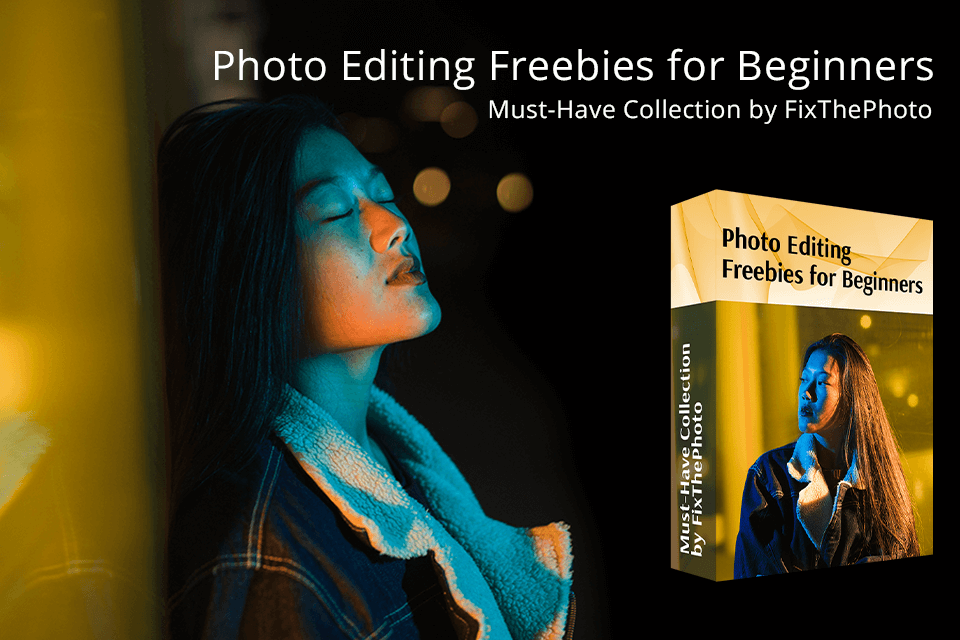
I have found these free tools for you to edit your pictures with little to no effort. With them, you can spend less time on photo enhancement, as you won’t need to edit every image from scratch. Regardless of the type of light source you prefer, be it COB full form in light or other models, you can select custom settings for every photo.
It depends on how you use them and how much heat they are exposed to. Typically, a COB LED can last up to 50,000 hours with the expectation that it is used for about 12 hours a day.
COB lights are based on one circuit with just two contacts to power the multiple diode chips. You don't need many components to make your LED chip run smoothly.
Most of the other LED options work on older LED technologies. This means they are inferior to COB LEDs in terms of brightness, beam quality, and energy efficiency.
Experts claim COB has amazing lumens per watt ratio and high heat efficiency. COB chips emit from 80 lm per watt. Energy consumption is lower than their counterparts. They are used in phone flashes, point-and-shoot cameras, various light bulbs, and more.
COB is ahead of SMD in this aspect too. They can produce 80 lm per watt and up. Whereas SMD can emit from 50 to 100 lm per watt. This means COB LED lighting is brighter.